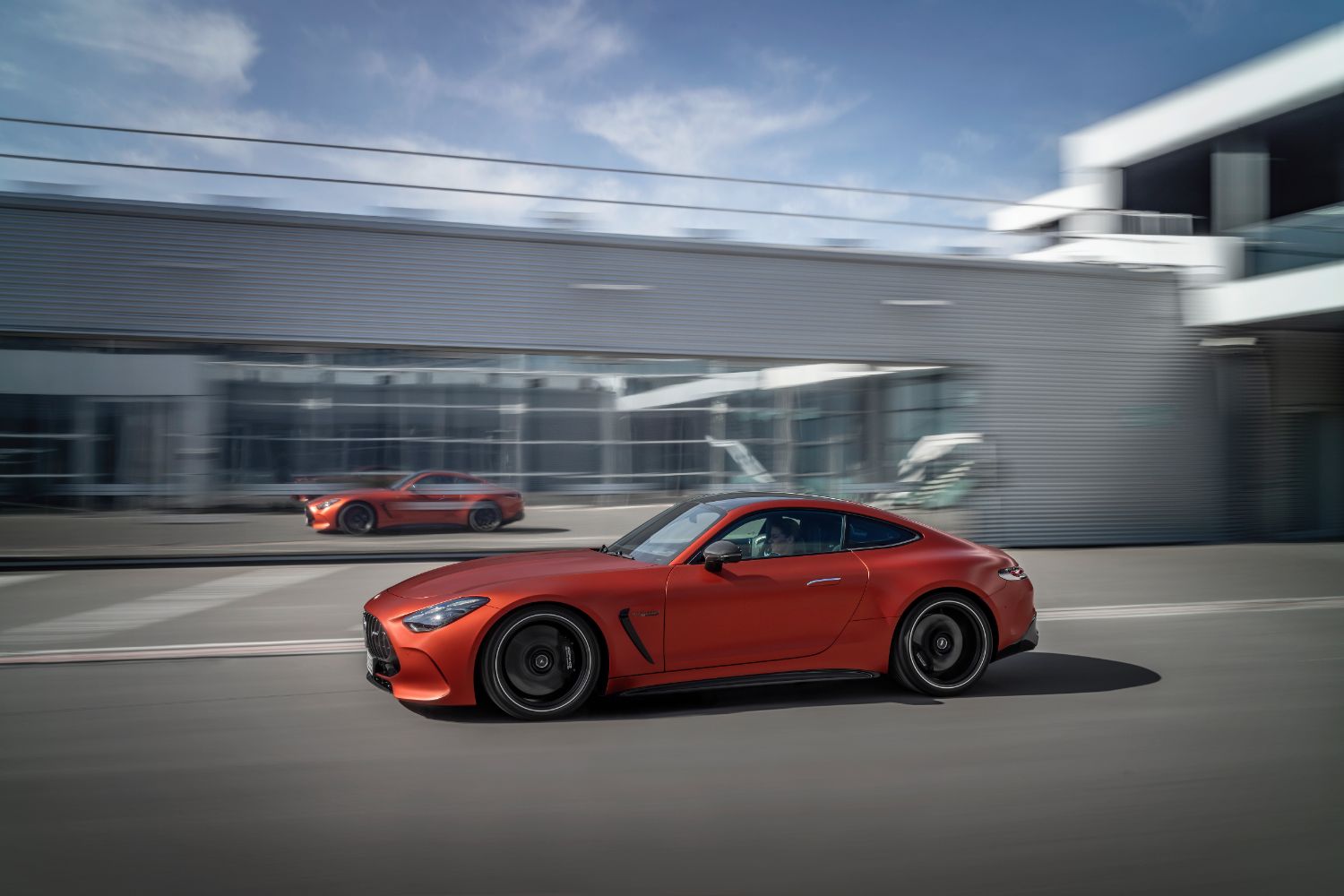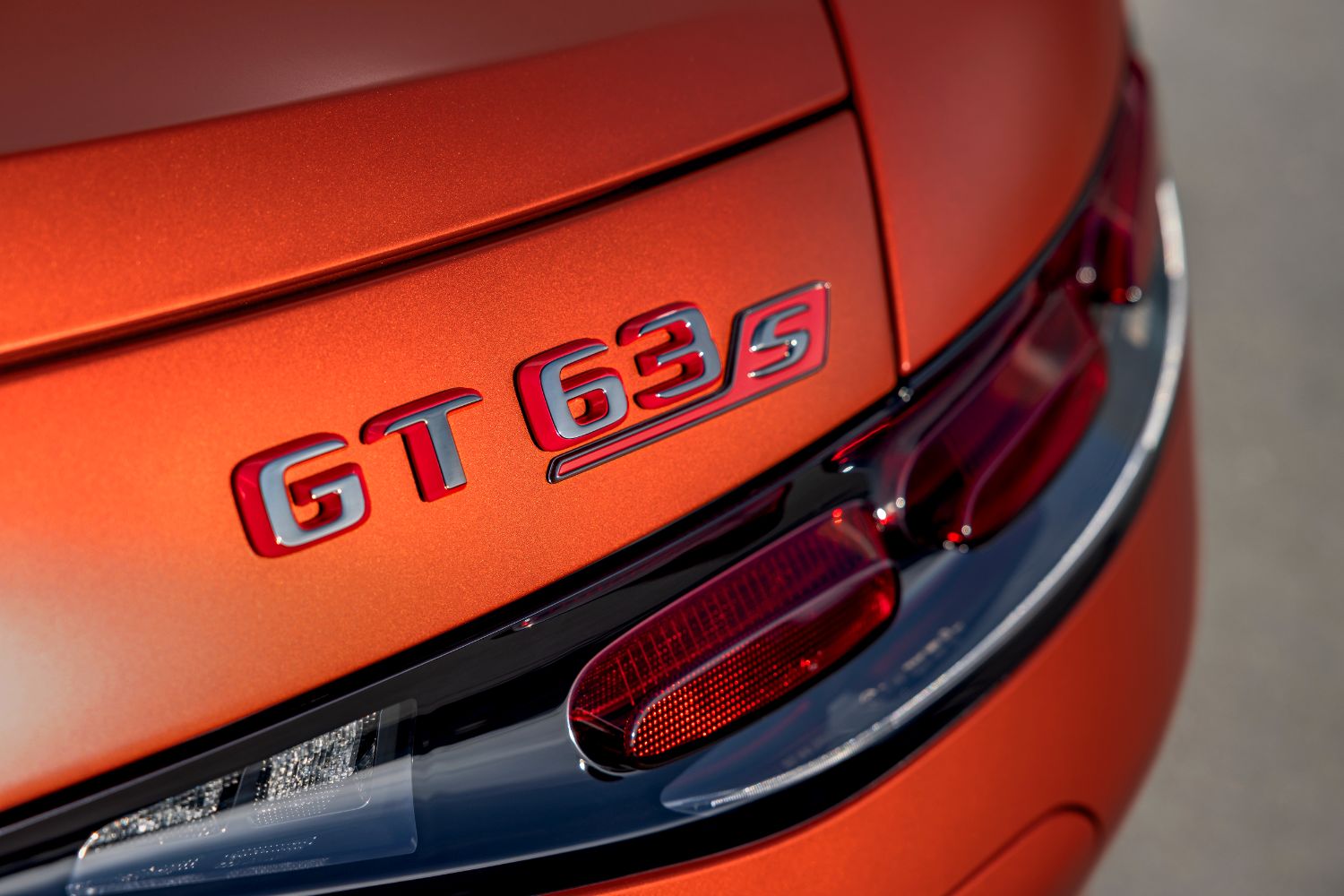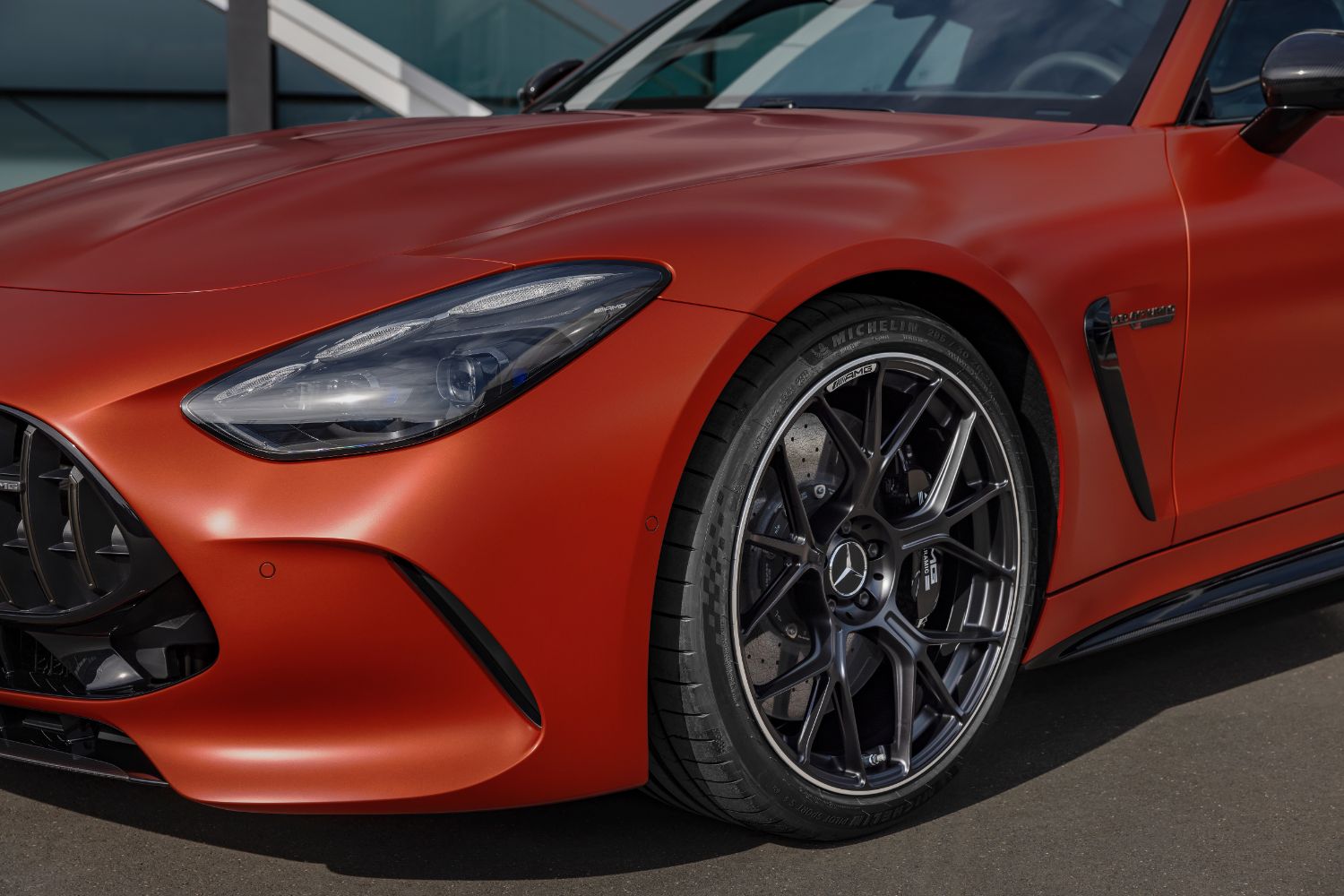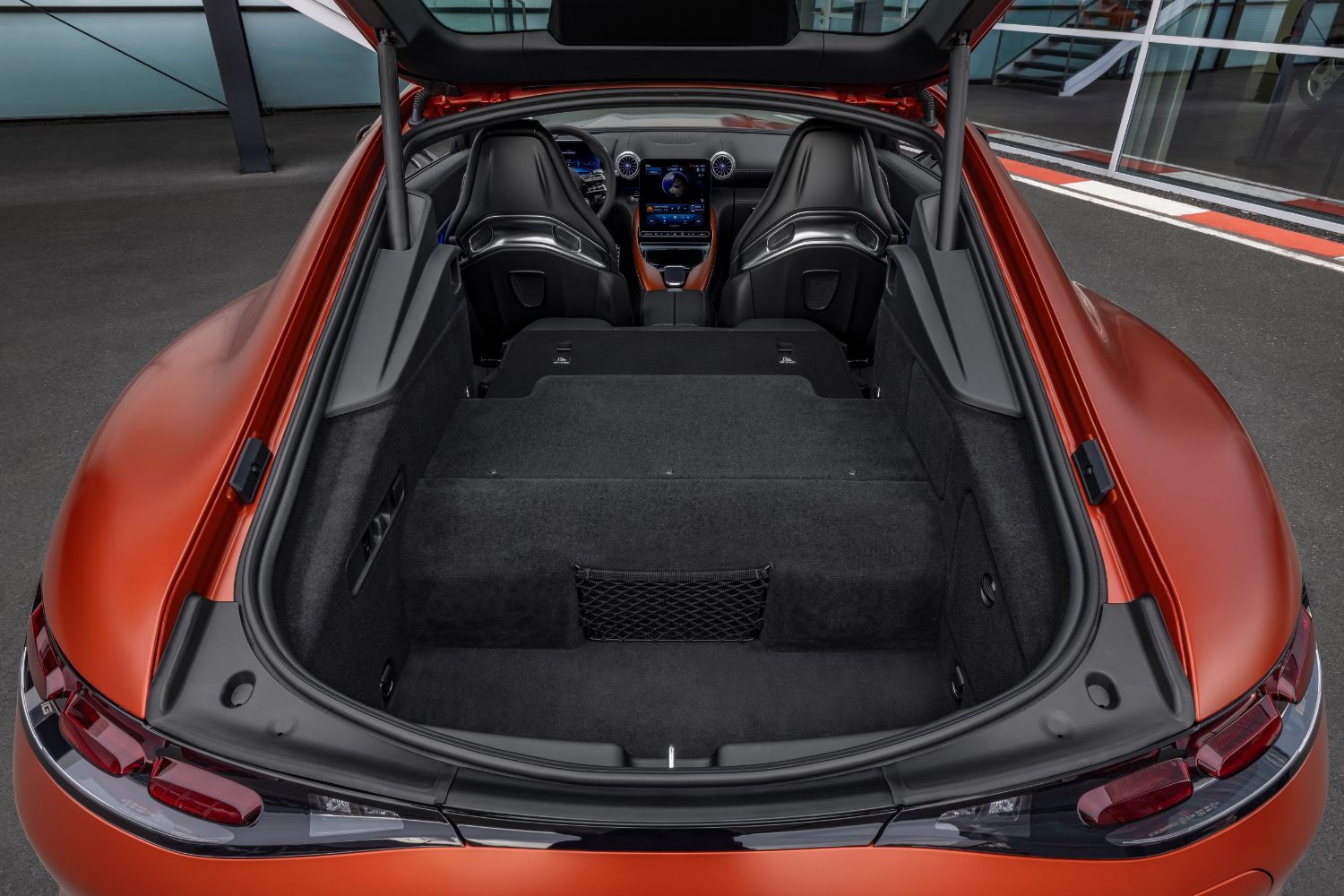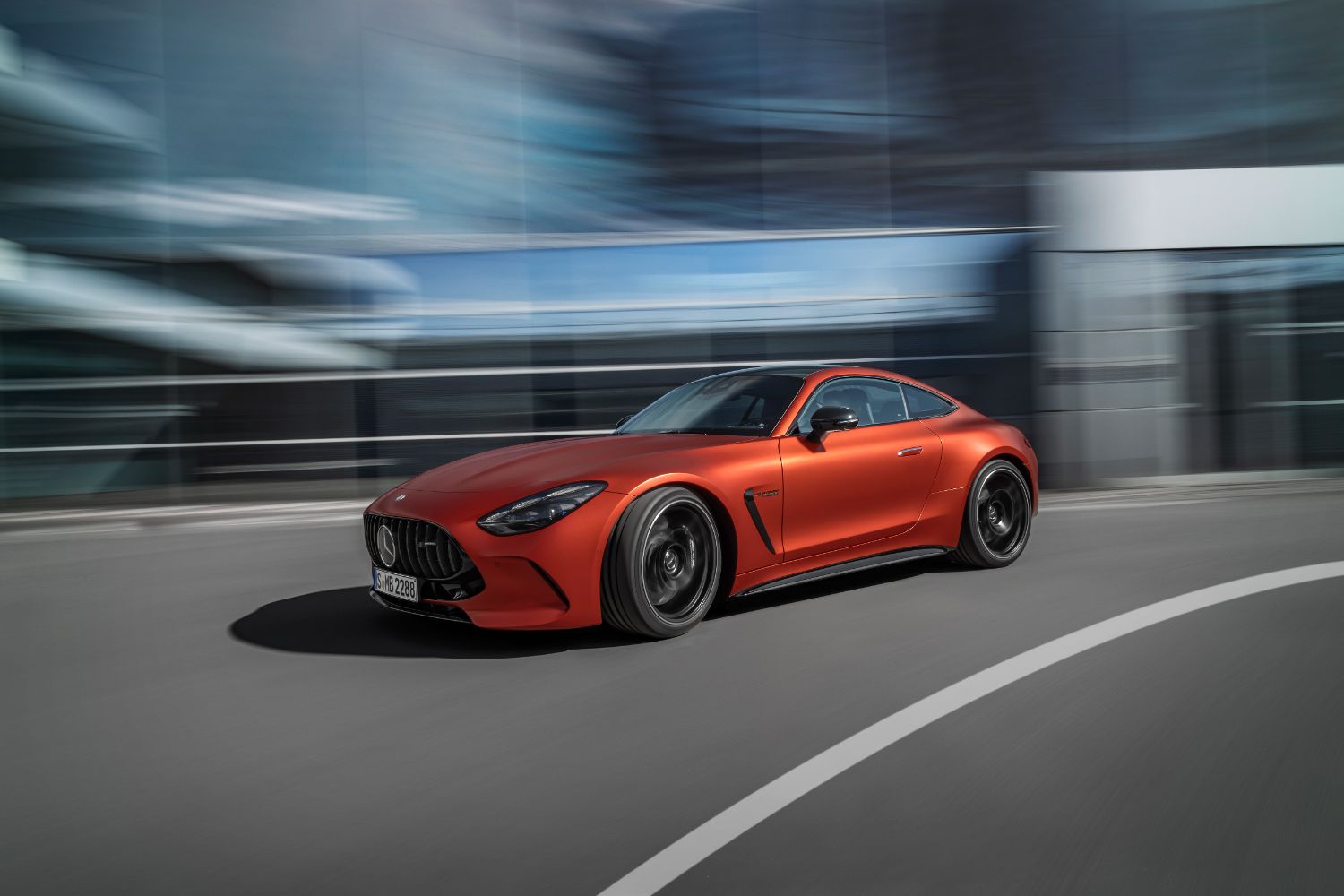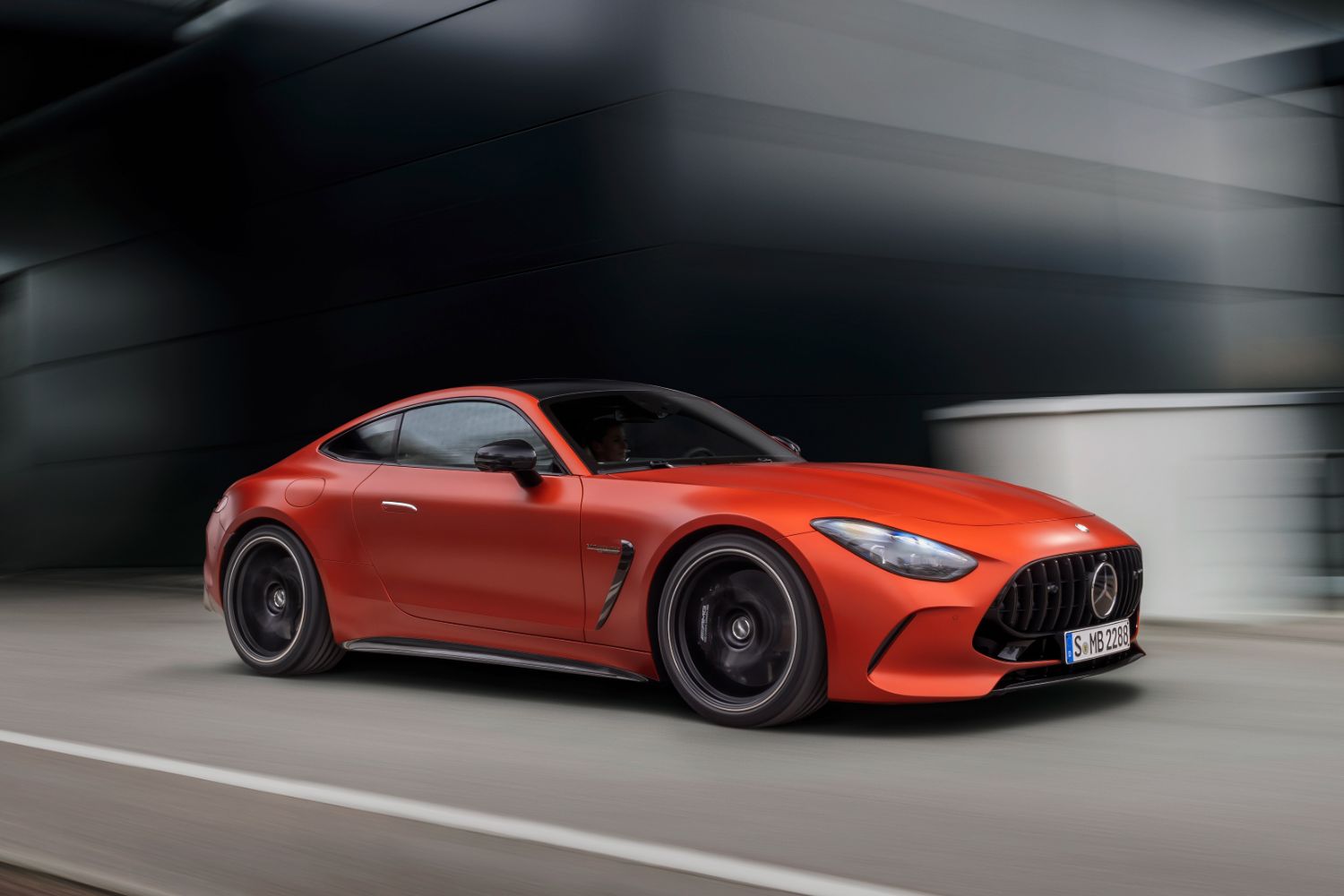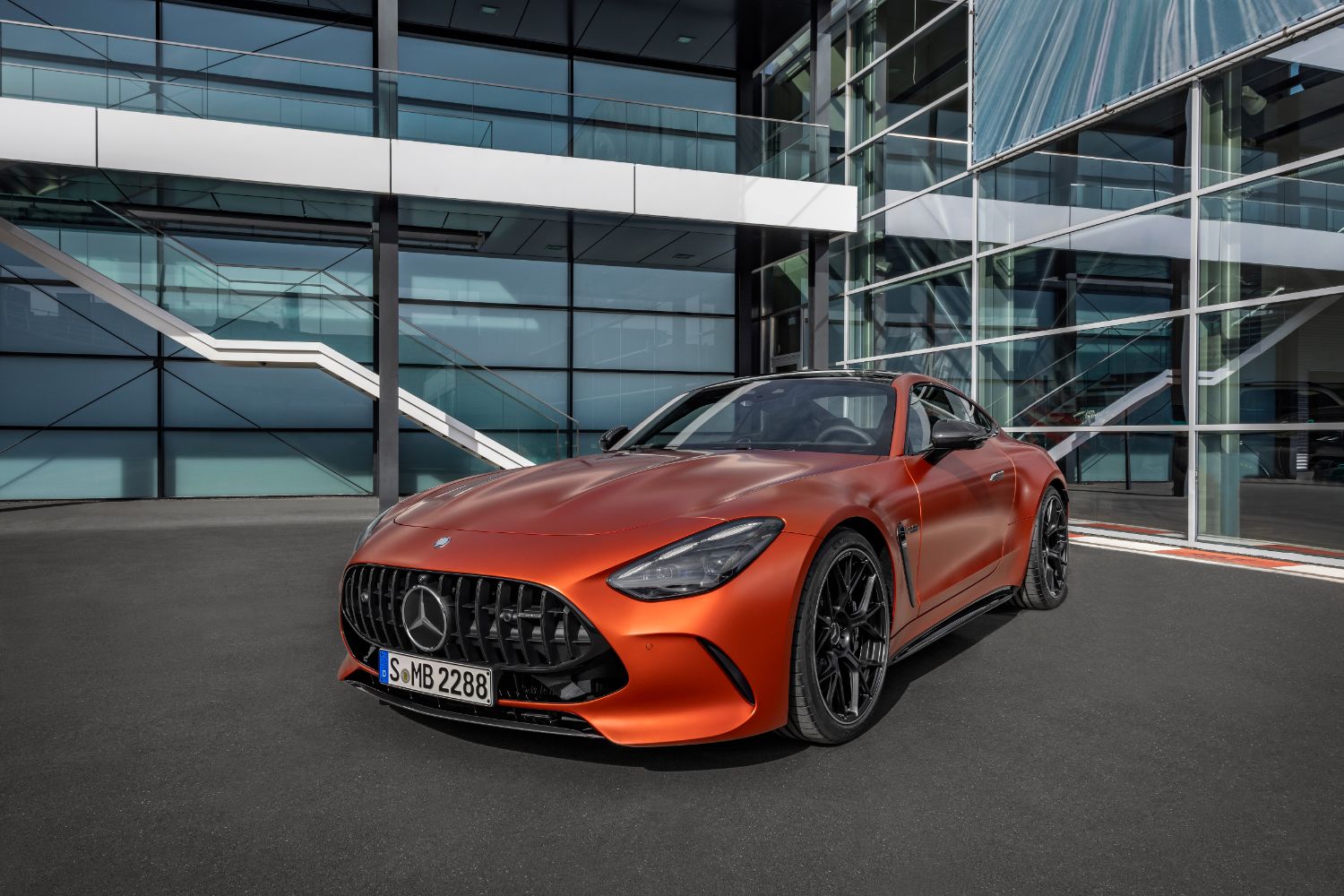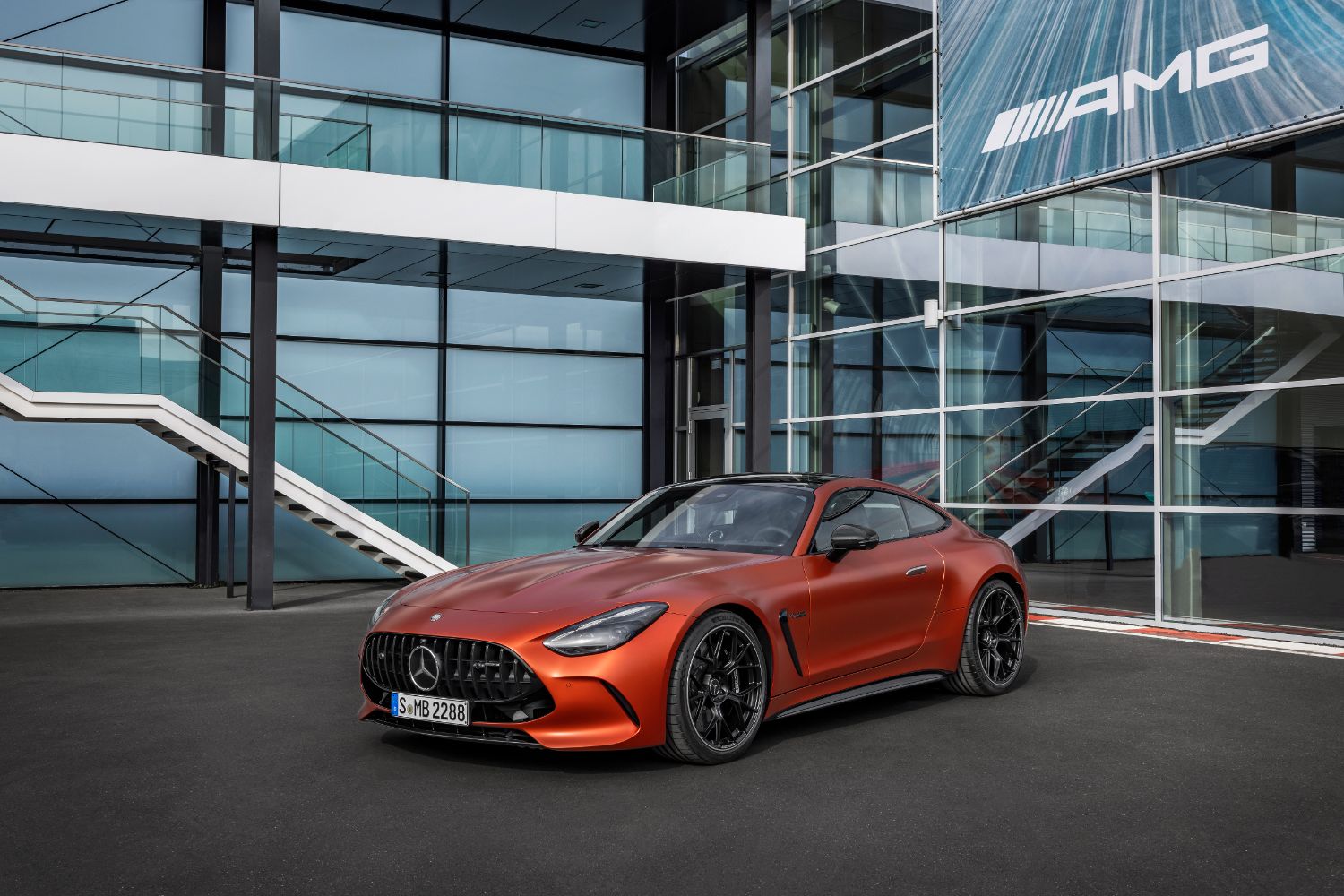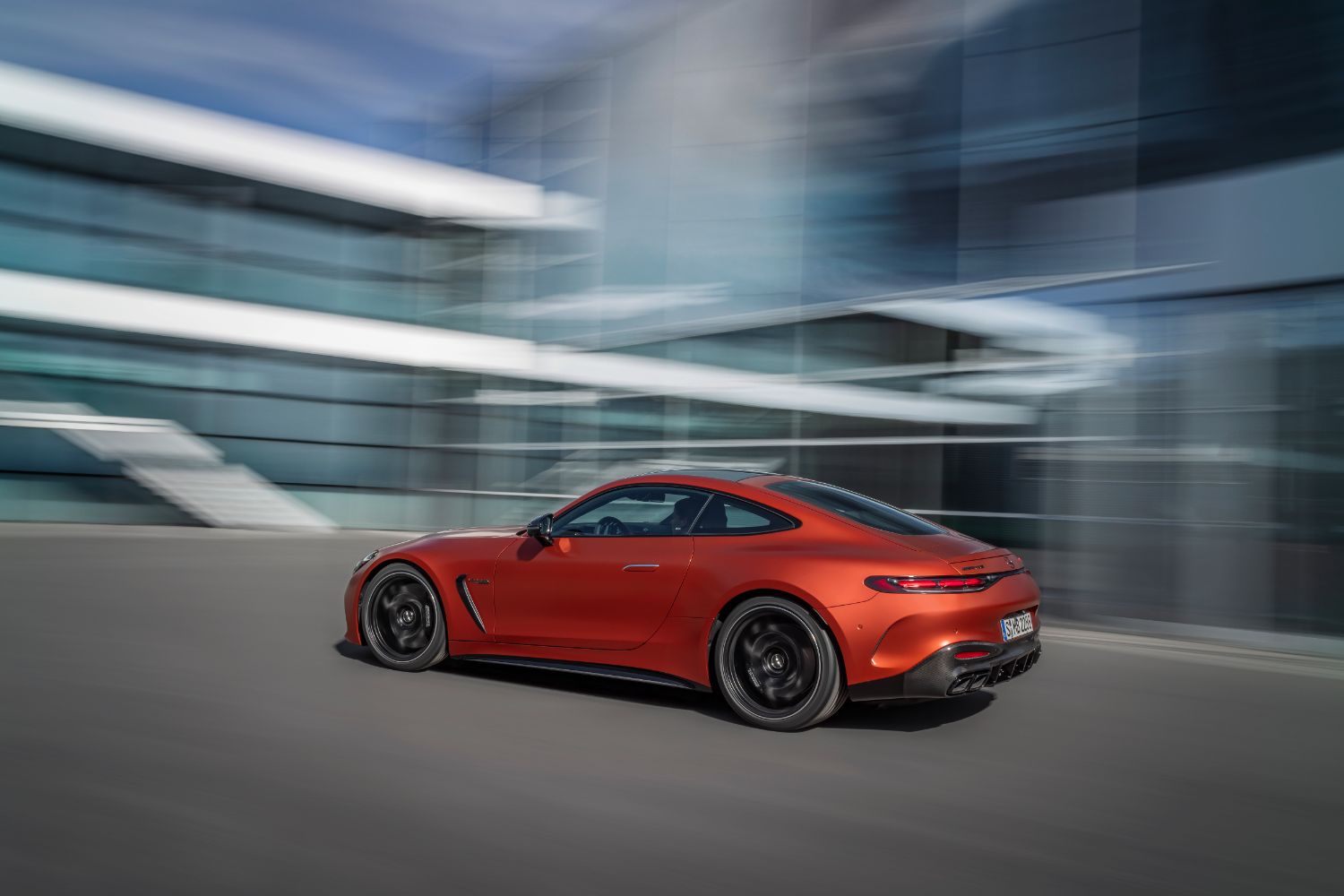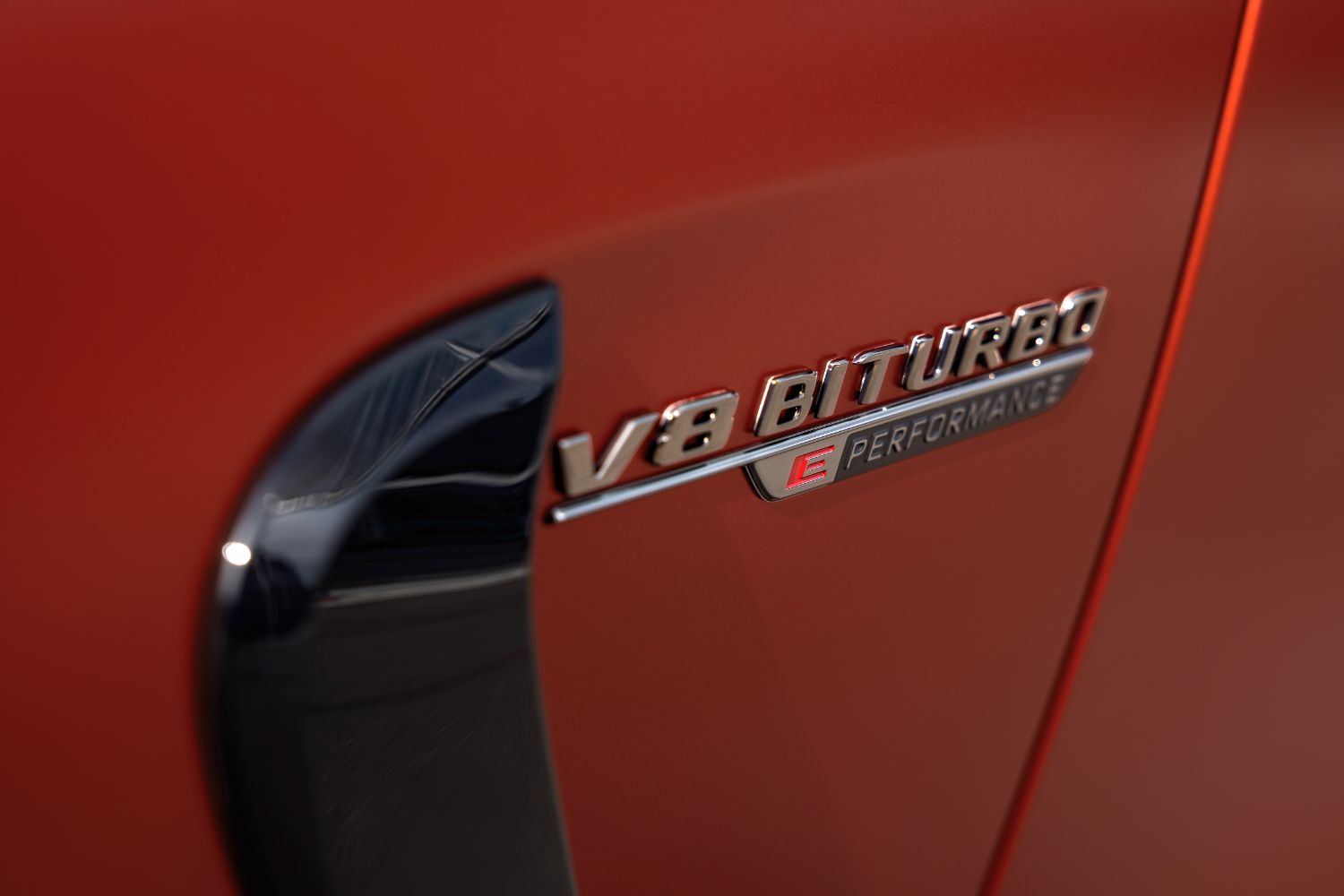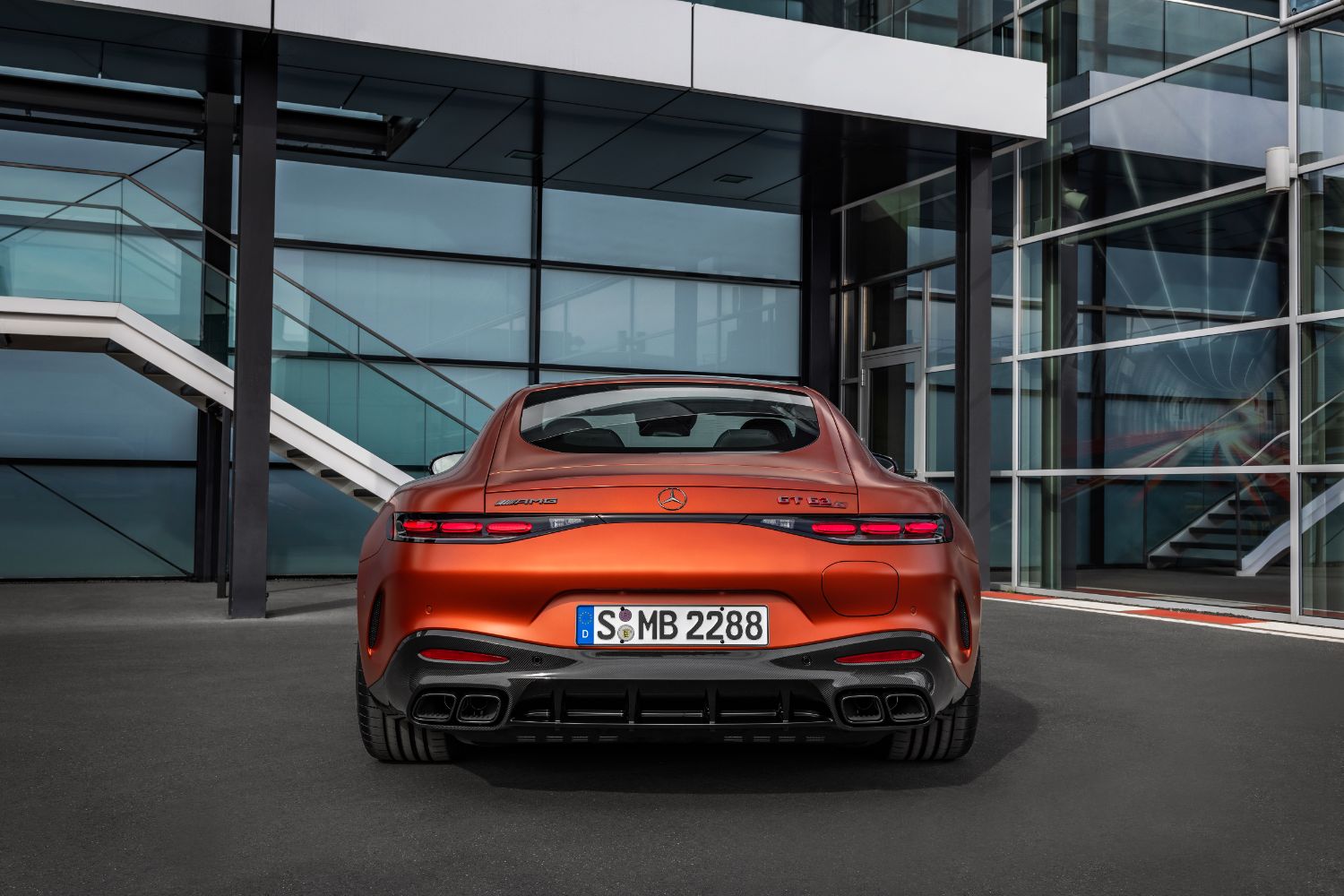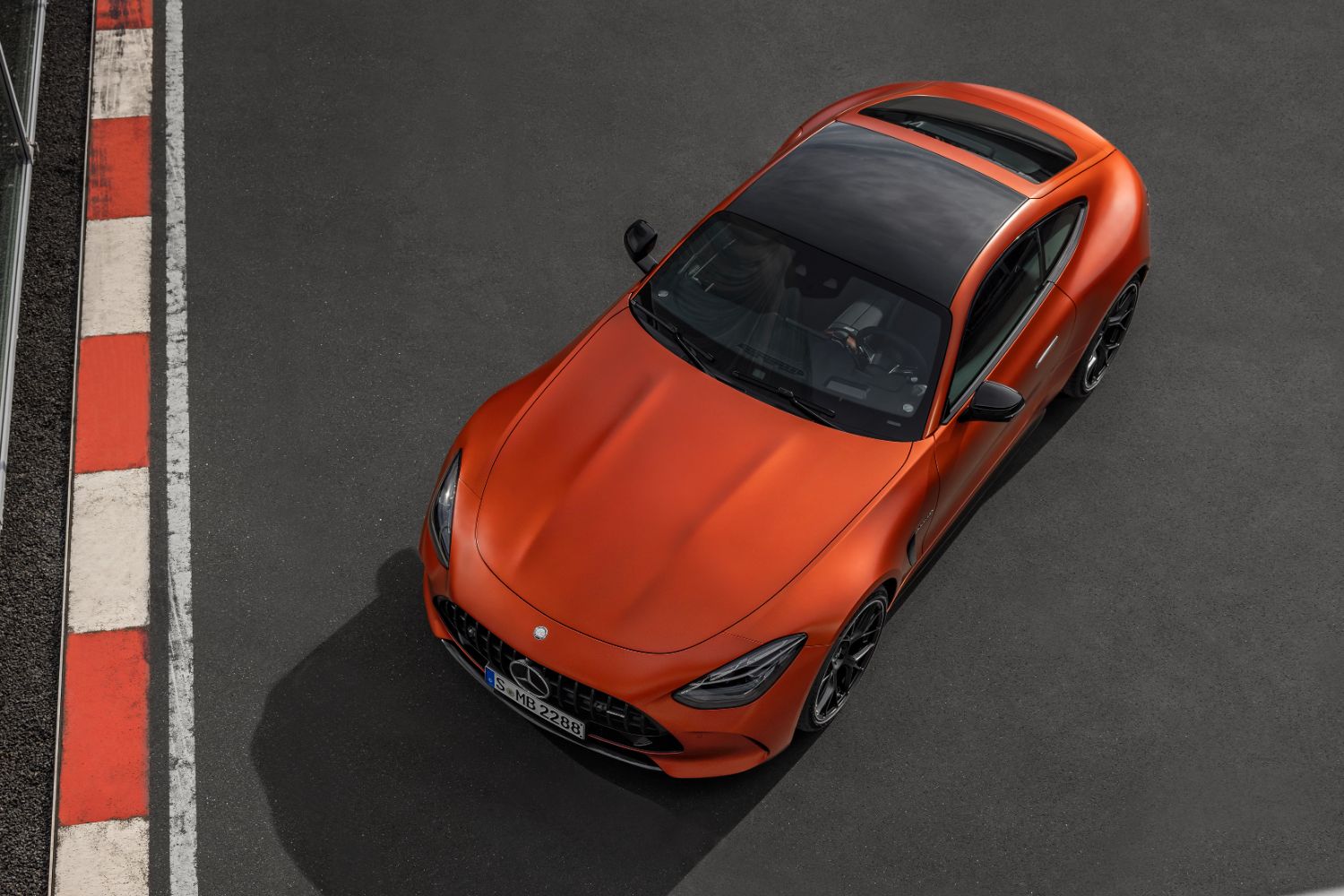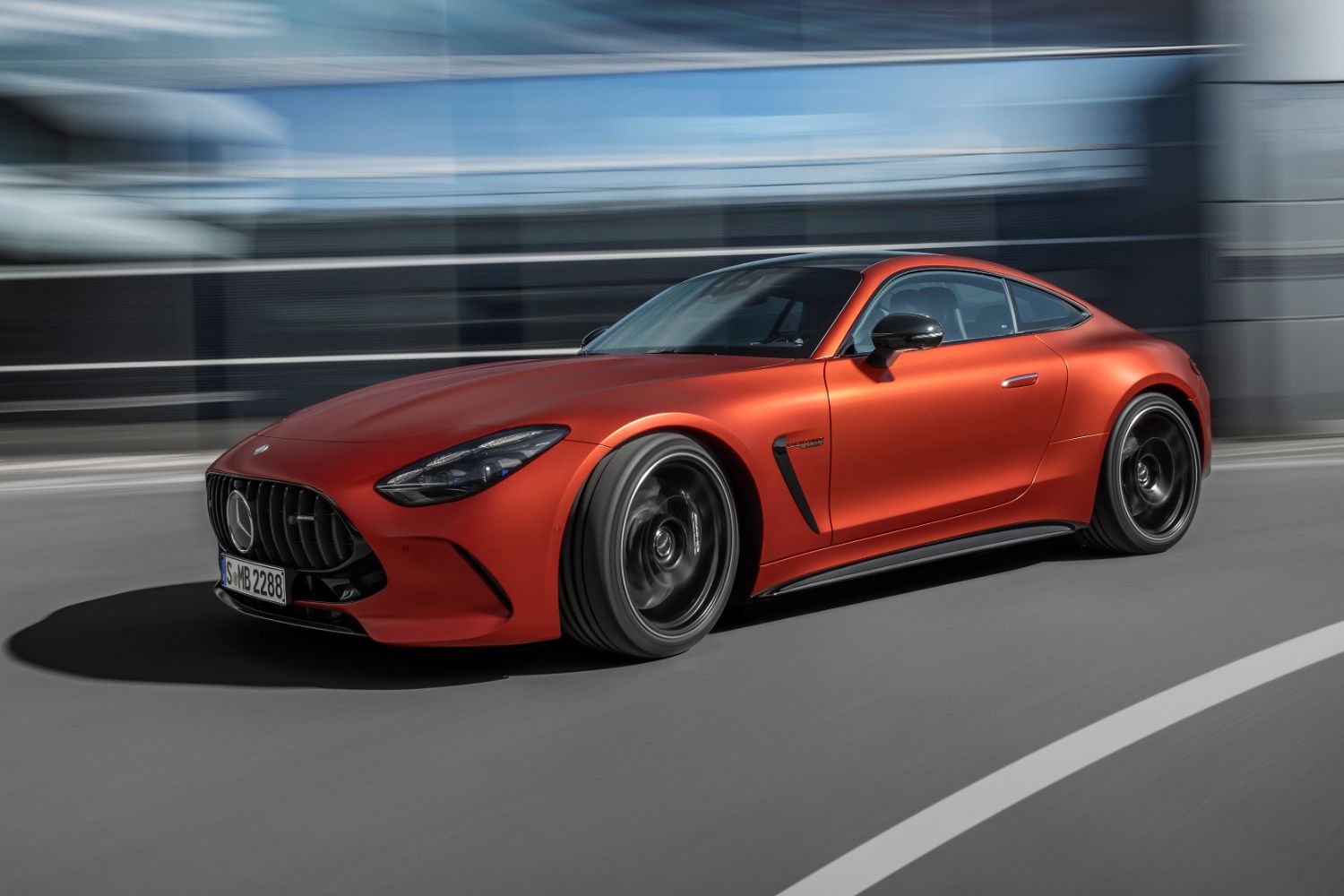Mercedes has chosen the Chinese Grand Prix to launch its new super-coupe, taking the wraps off the new Mercedes-AMG GT 63 S E Performance two-door coupe at the Shanghai race track. It seems appropriate - not only do Mercedes-AMG V6 engines power eight cars on the F1 grid this weekend (those of the Mercedes team itself, of course, but also Aston Martin, Williams, and McLaren) but so too do AMG-developed batteries, as of course all F1 cars since 2014 have been hybrid-powered.
Compact battery
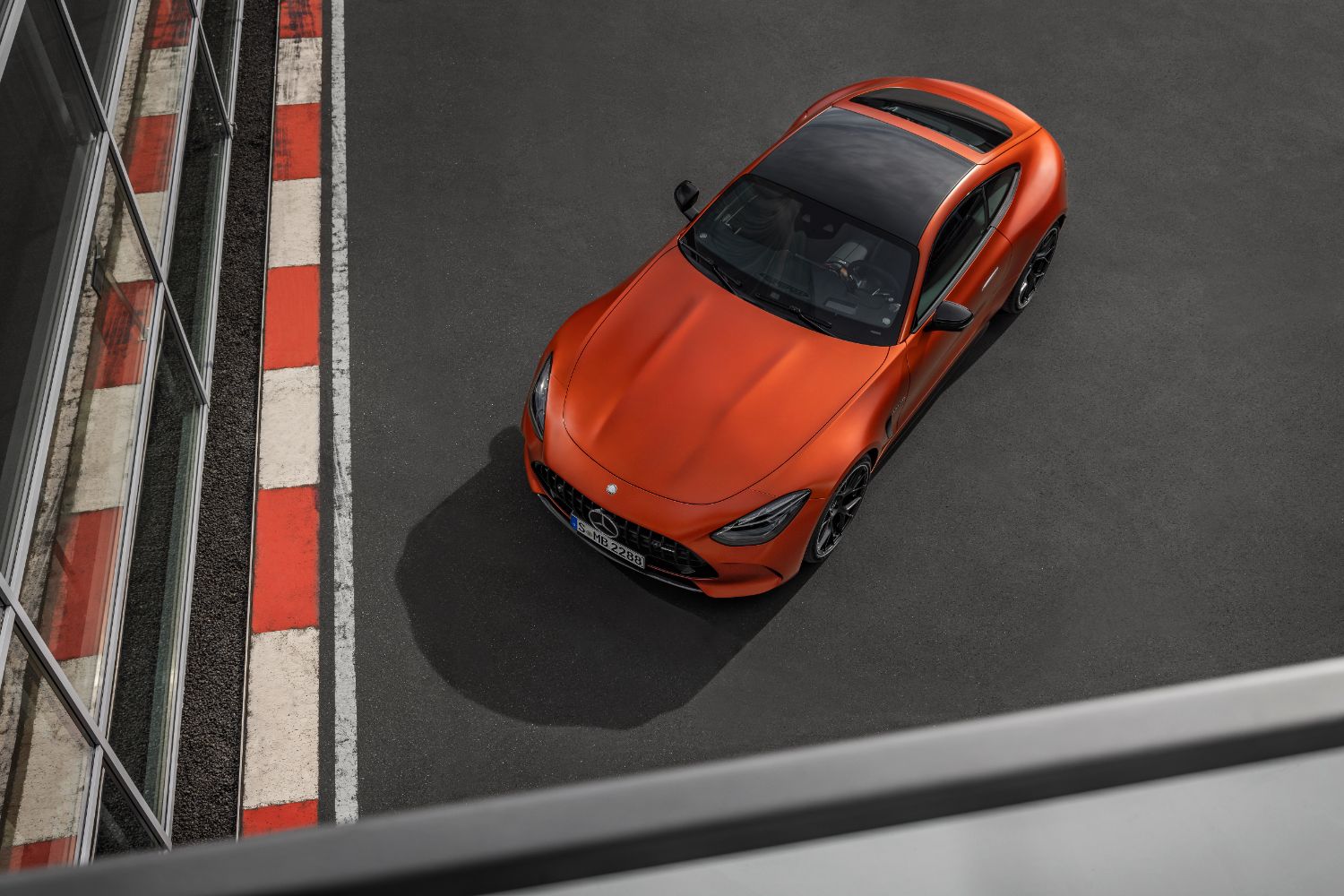
So, too, is the Mercedes-AMG GT 63 S E Performance, which packs a 4.0-litre twin-turbo V8 petrol engine, a 204hp (150kW) electric motor, and a compact battery pack mounted directly above the rear axle.
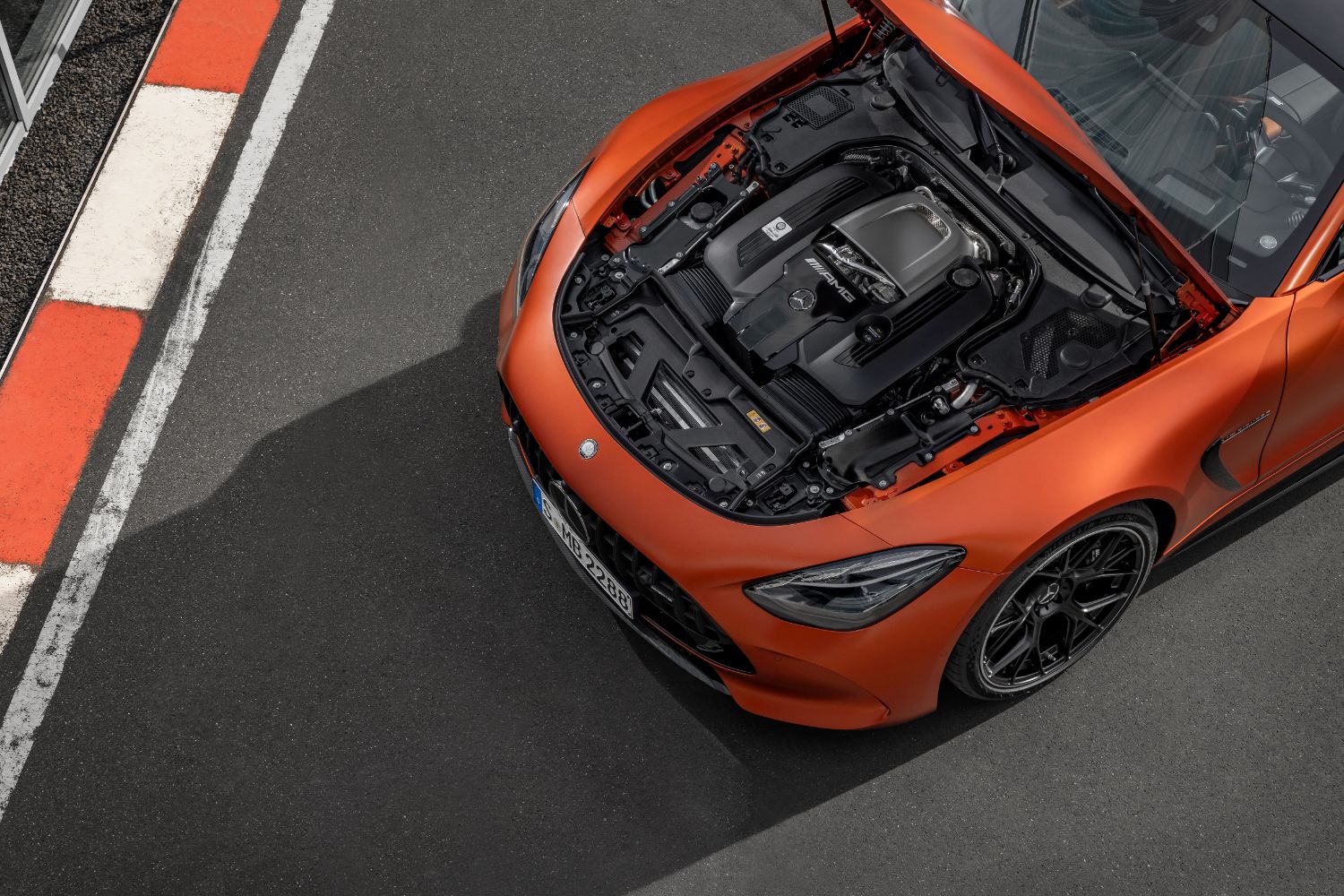
Thanks to a combination of 816hp (or a nice, round 600kW if you prefer) and - are you sitting down? - as much as 1,420Nm of torque the AMG GT 63 S E can accelerate from 0 to 100km/h in just 2.8 seconds, making it the fastest-accelerating AMG model ever, and one of the fastest road cars of all time. Its top speed is a relatively academic - unless your drive way opens onto a Autobahn or the runway at Knock - 320km/h.
“From zero to 100 in 2.8 seconds - no AMG series model has ever sprinted that fast before. Given these values, it was clear that the world premiere of the new AMG GT 63 S E Performance had to take place on the sidelines of a Formula 1 race. Our four-litre V8, combined with the performance hybrid system, makes the vehicle the top model in our GT family. The GT 63 S E Performance combines enormous performance with a very dynamic driving experience and thus creates pure goosebumps. At the same time, the vehicle offers extensive equipment options and high-quality materials, making it one of the most exclusive performance-coupés on the market” said Michael Schiebe, CEO of Mercedes-AMG.
Special driveshaft
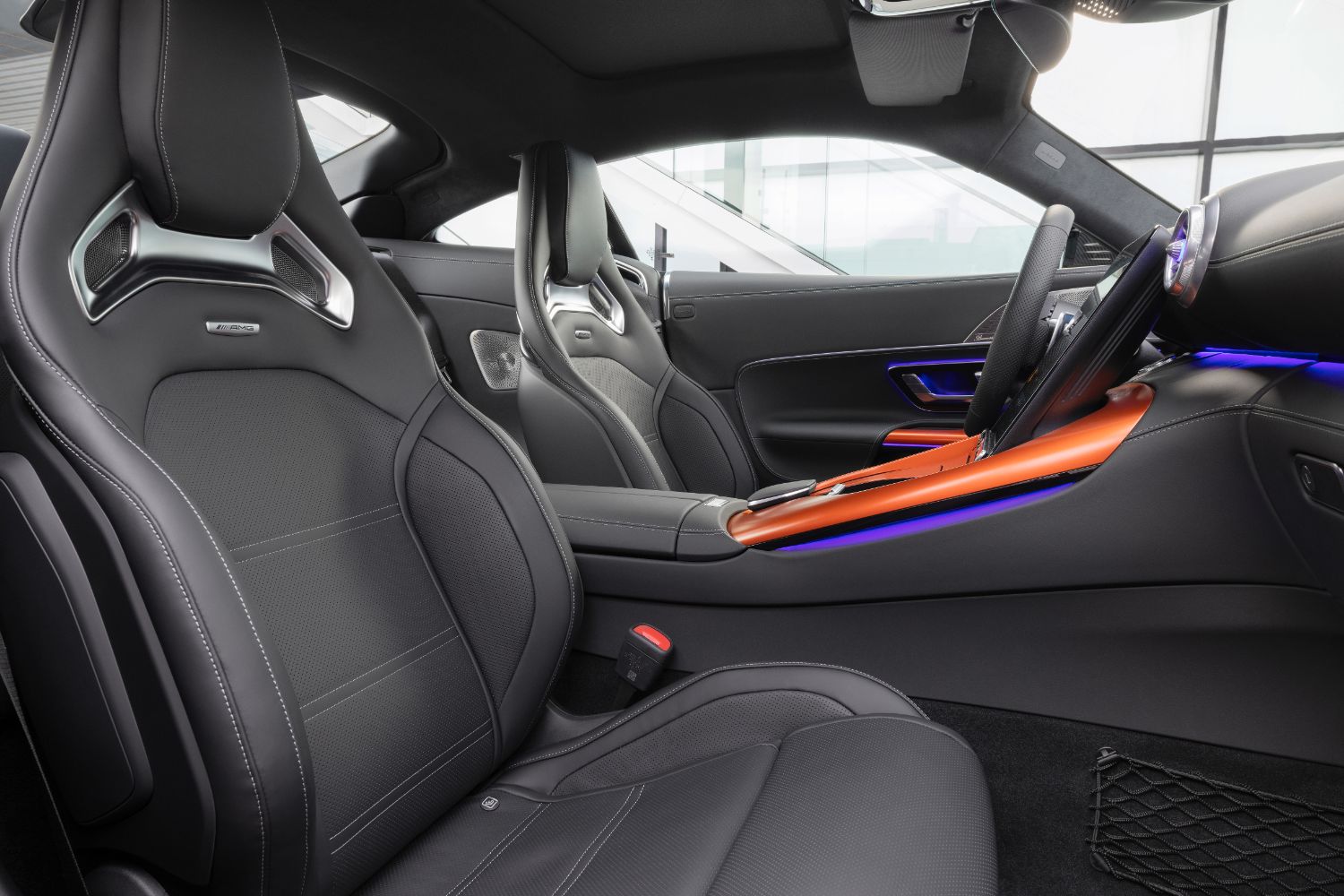
The whole hybrid package sits atop the rear axle of the AMG GT 63 S E, combining a permanently excited synchronous electric motor with an electrically switched two-speed transmission and a mechanical rear-axle limited-slip differential. The electric motor can therefore, act directly on the rear driveshafts, making it faster to respond, but it can also send power to the front wheels, thanks to the car’s 4MATIC four-wheel drive system and a special cardan shaft (like a regular driveshaft but with multiple articulating links so that it can bend around other mechanical bits).
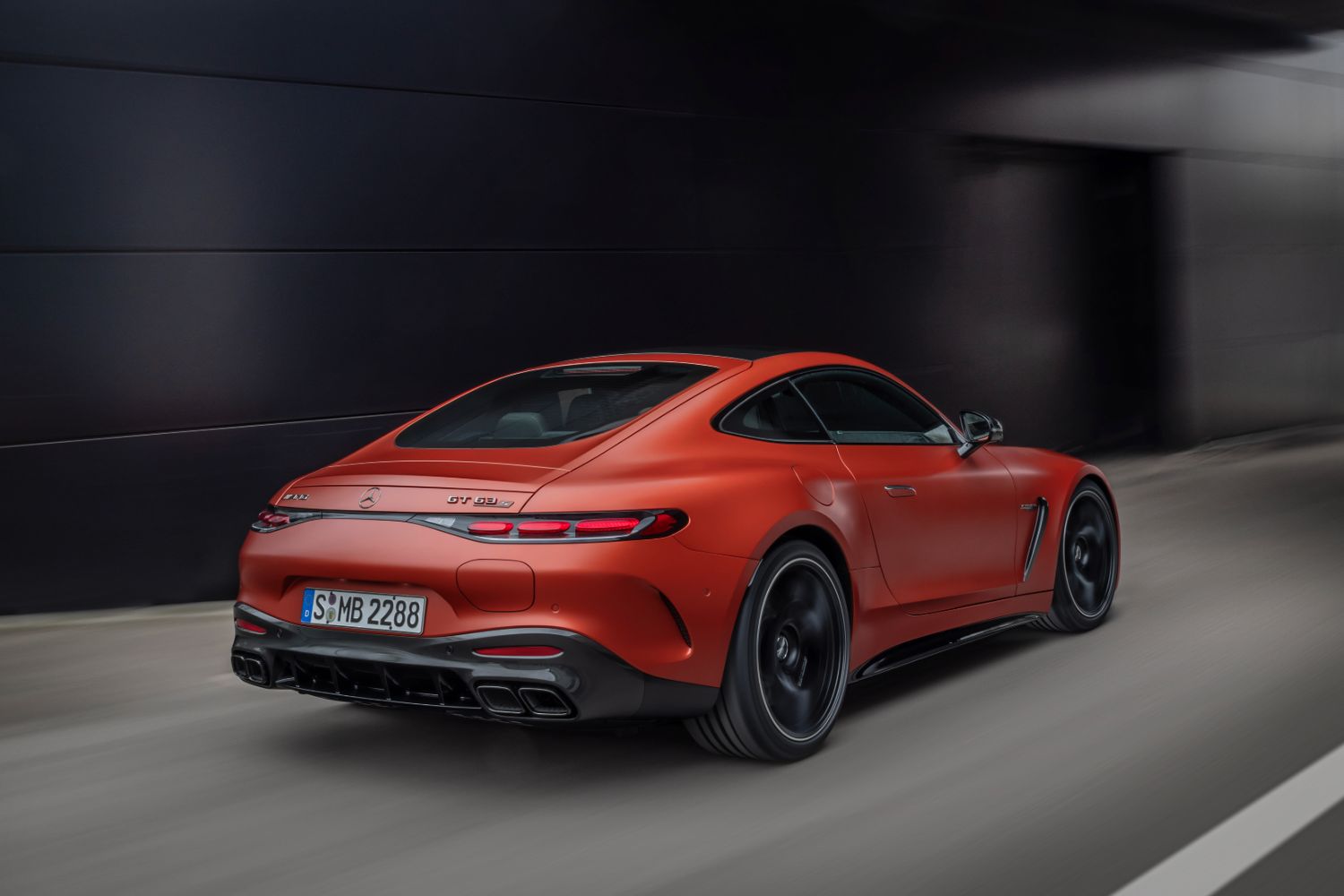
The 6.1kWh battery itself is, obviously, crucial to proceedings, and Mercedes says that the critical thing here is keeping it all properly cooled so that it can output a consistent 70kW of energy and 150kW in bursts. To do that, Mercedes-AMG (helped by High Performance Engines in Brixworth in the UK, the bit of Mercedes that makes its F1 hybrids), has developed a special cooling system which passes a non-flammable liquid through tiny 1mm channels in and around the 400-volt vattery’s 560 individual cells. That, says AMG, is enough to ensure peak performance at all times. The constant temperature effect - the cooling system keeps the cells at a happy 45 degrees Celsius - means that the AMG GT 63 S E can also recuperate energy from braking with spectacular efficiency, hitting a peak of 100kW of regeneration power depending on the driving mode, and allowing you to use ‘one pedal’ driving in town.
Electric-only range
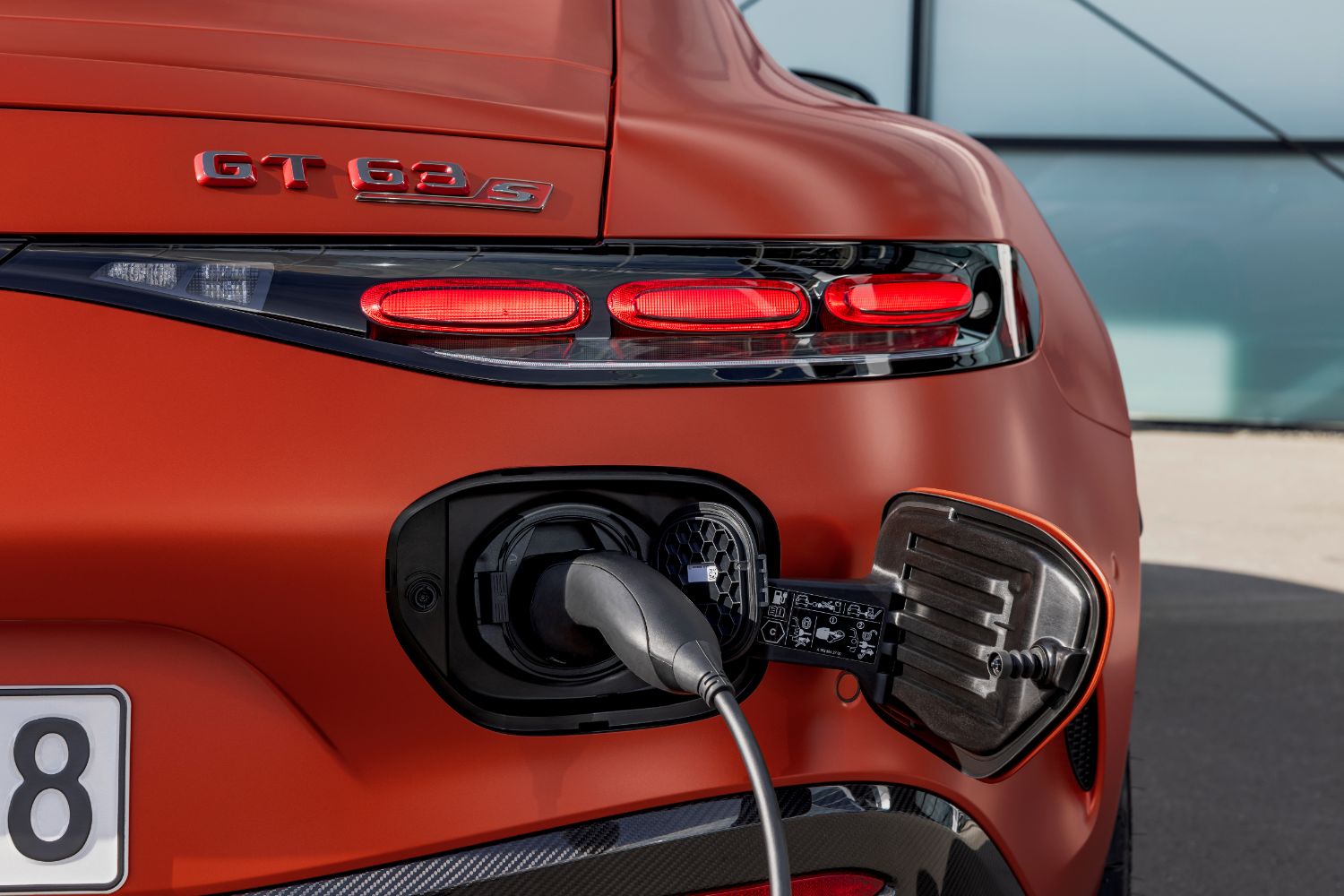
If you need a little bit of zero-emissions motoring, you can plug this battery into the mains (it charges at 3.7kW) and top it up for as much as 13km of electric-only driving. Not much, but every little helps, one supposes.
There are eight driving modes to choose from - using the gorgeously tactile steering wheel buttons - and they include “Electric”, “Battery Hold”, “Comfort”, “Slippery”, “Sport”, “Sport+”, “Race”, and “Individual” plus a bonus mode for those early morning airport runs - “Silent.” Even when you do start it up in Silent mode, though, the stereo system (by Burmester, naturally) plays a burst of AMG V8 engine noise through the cabin speakers, just to remind you what’s going on…
The AMG GT 63 S E also has some trick aerodynamics, including an active aero panel in front of the engine and under the bodywork that extends by up to 40mm at speed. This panel causes a ground-effect suction under the car and helps direct air up to and out beyond the rear axle. The active boot spoiler also extends through five different positions once you’ve reached above 80km/h for optimum downforce and balance.
Active anti-roll
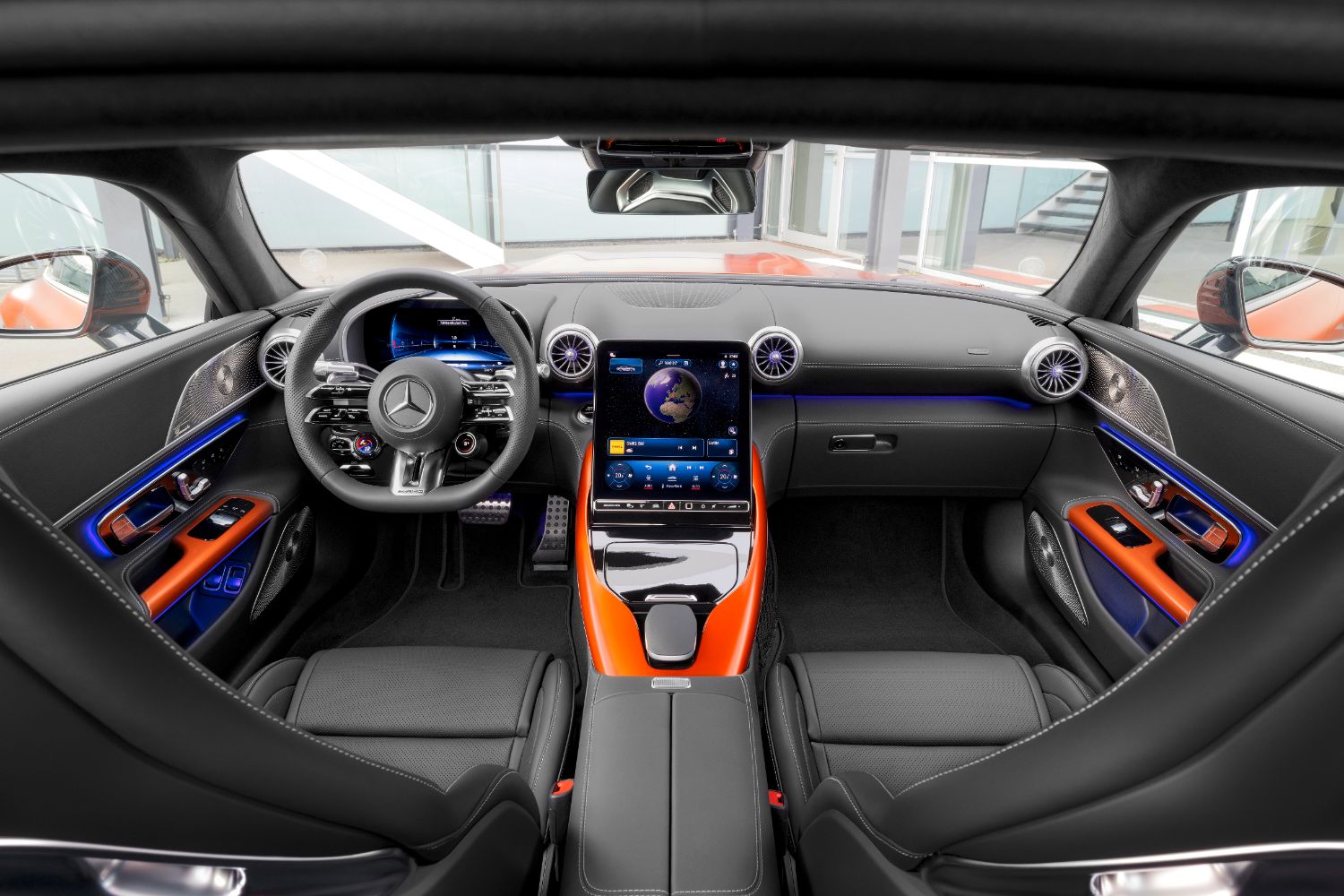
Speaking of balance, the AMG GT 63 S E also use partially active suspension, with interconnected hydraulic dampers which replace the usual anti-roll bars. Because these can press down on the conventional suspension system, they can actually actively hold the AMG GT’s body level in corners. The idea is that you get the zero-roll effect of stiff racing suspension but the comfort of a conventional Mercedes because the hydraulics can press and lift off as needed.
There’s also rear axle steering, which makes the AMG GT 63 S E more stable at speed (the rear wheels turn the same way as the fronts, making it seem like the car's wheelbase is longer) and more nimble when going slower (then the rears turn the other way, tightening the turning circle - perfect for Alpine hairpins or Tesco car parks).
While electric one-pedal braking at low speeds is possible, Mercedes hasn’t scrimped on the proper brakes. The AMG GT 63 S E comes as standard with a ceramic high-performance composite brake system, with bronze-coloured 6-piston fixed callipers at the front and one-piston floating callipers at the rear. Compared to AMG GT models with a pure combustion engine, it is larger in size: the carbon ceramic brake discs on the front axle measure 420 x 40 millimetres and on the rear axle 380 x 32 millimetres.
On the outside, the car gets E-Performance badges, unique exhaust exits, and 20-inch AMG light-alloy wheels in a ten-spoke design.
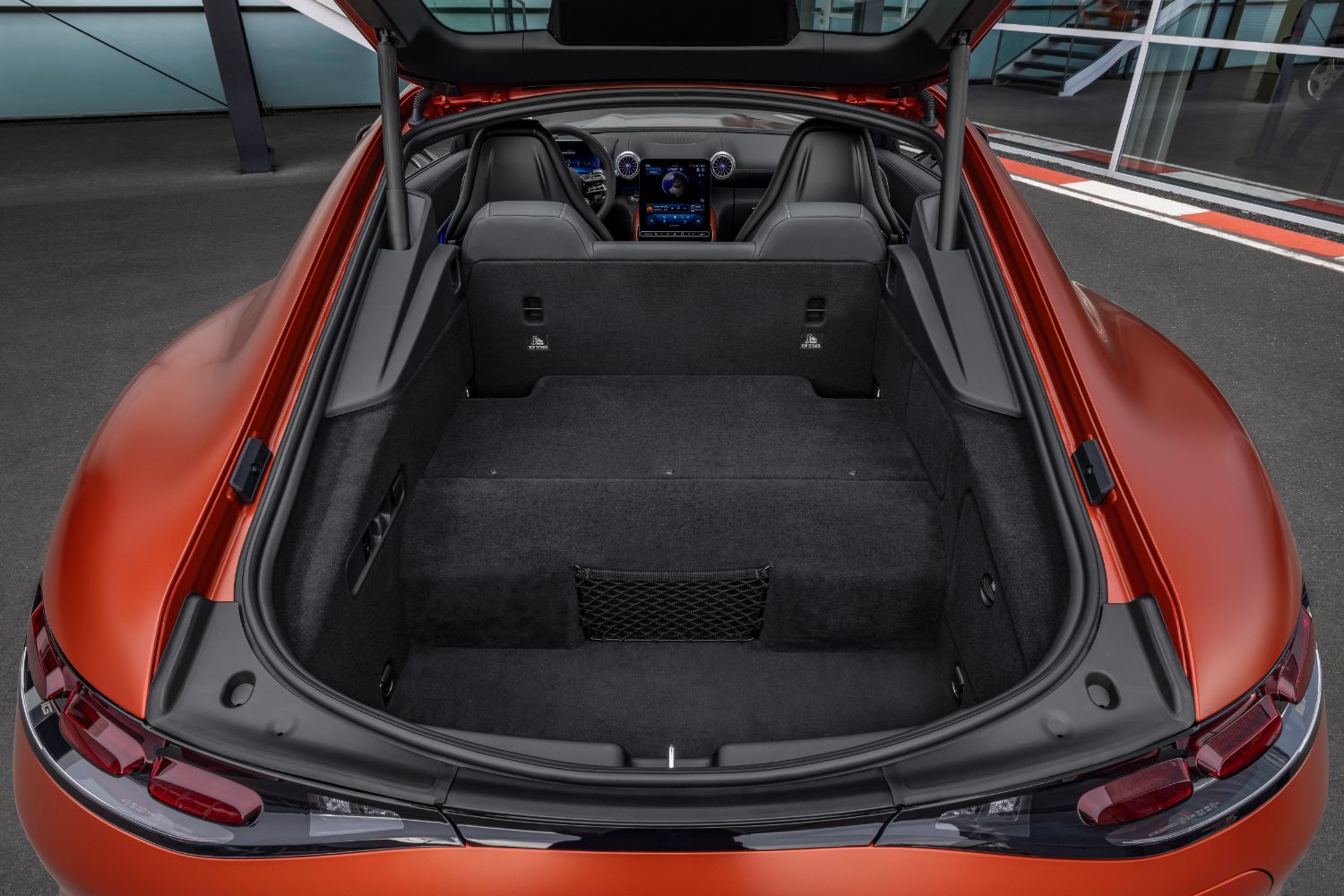
Inside, the AMG GT 63 S E is a 2+2, so there are rear seats (good luck fitting any actual human in them, though), and you also get AMG sports bucket seats with massage function, as well as two-tone Nappa leather upholstery. Mercedes is throwing open its ‘Manufaktur’ paint and trim catalogue if you want bespoke items.
